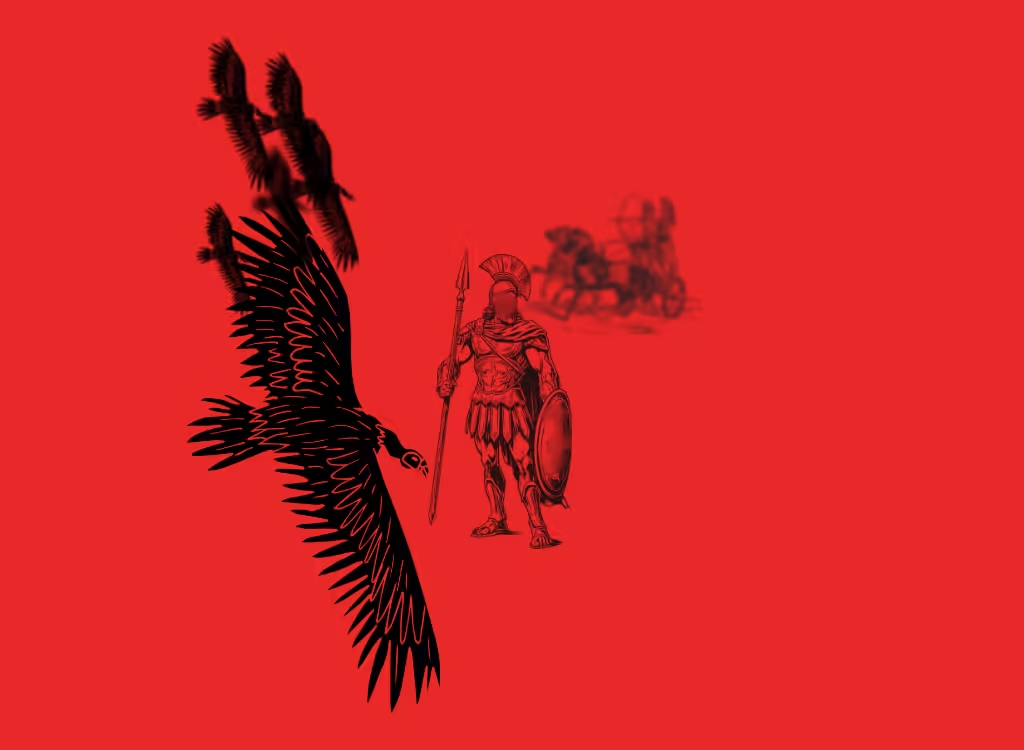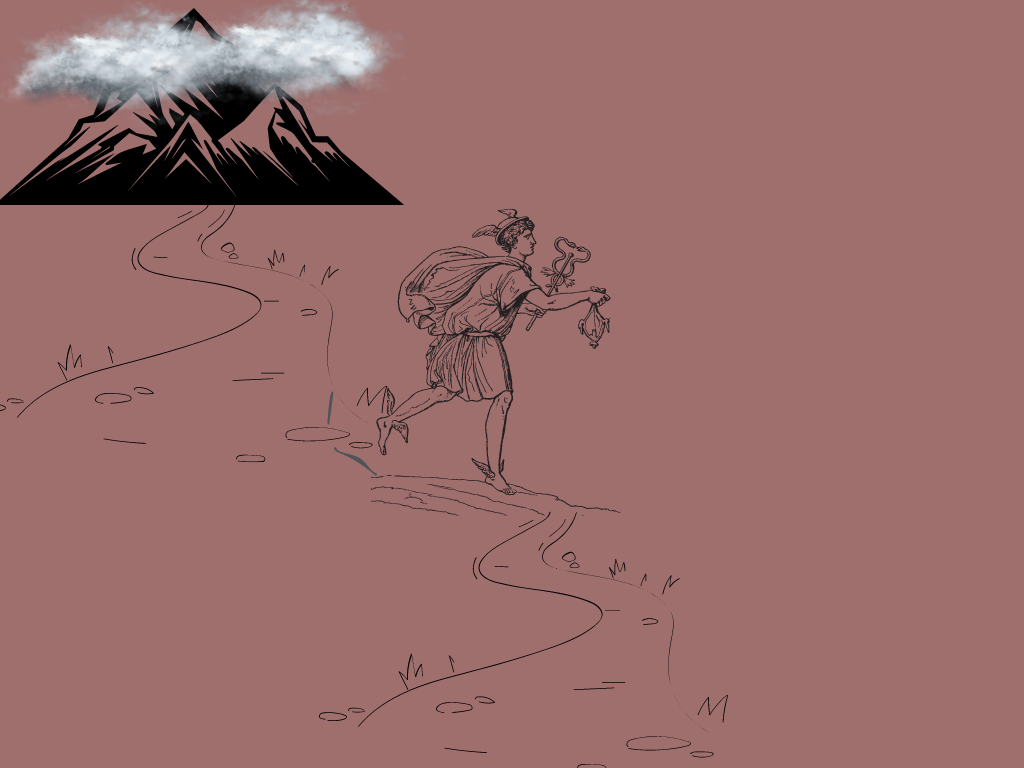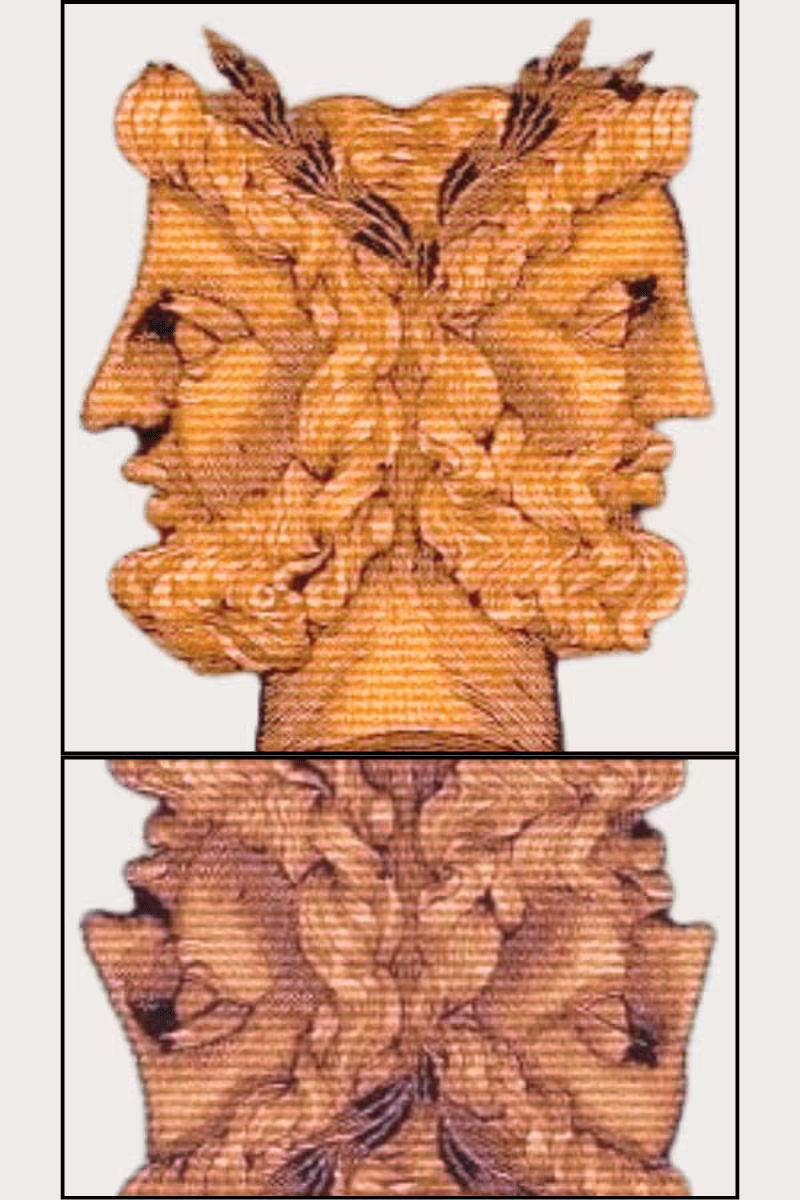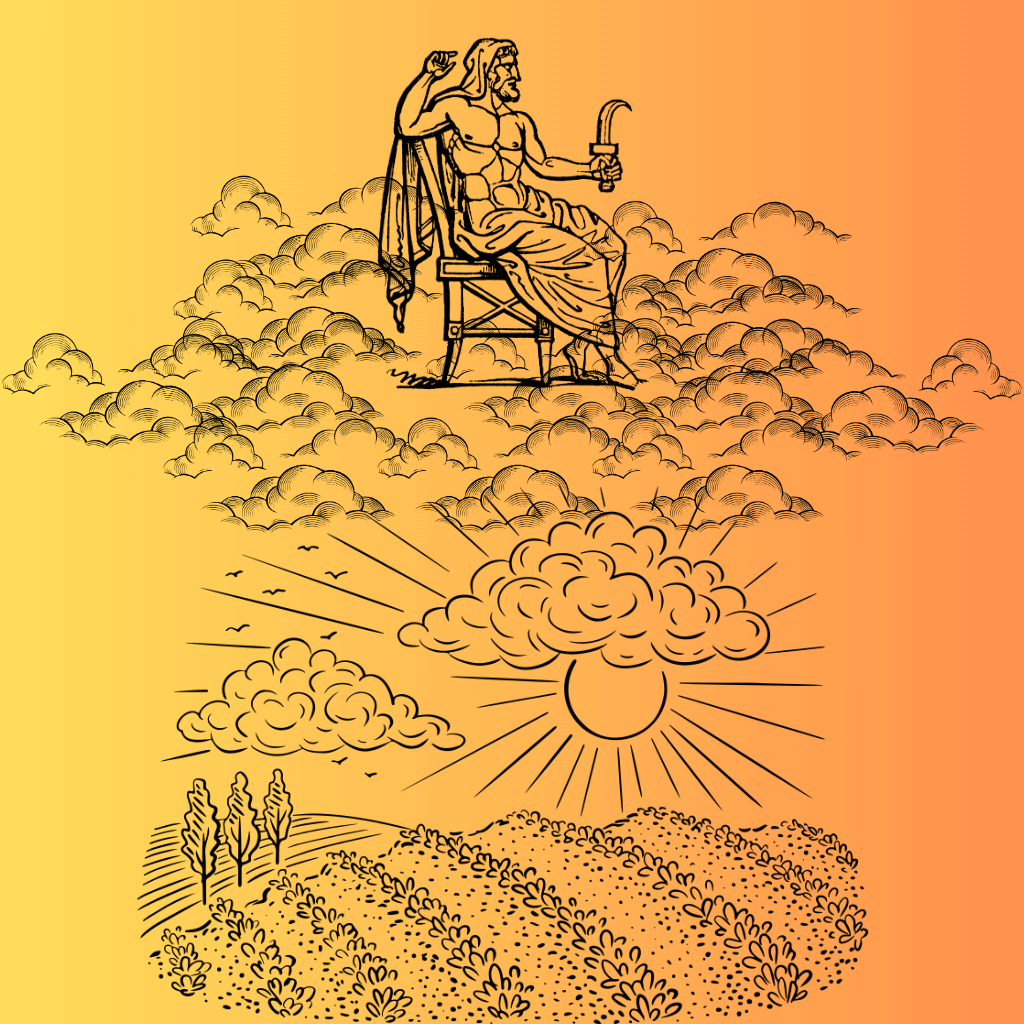
Ares, the son of Goddess Hera and God Zeus, is the god of war in Greek Mythology. Among the gods and goddesses in Greek Mythology, very few evoke turmoil and chaos like Ares, the Greek god of war. Unlike his sister Goddess Athena, who represents the strategic and wisdom-requiring aspect of war, Ares god of war is a god who embodies the cruel and savage aspect of war and combat; violence, bloodshed and chaos…
Both revered and feared, Ares god personified not only the act of war, but also the uncontrolled rage and destruction that came with it.
Ares God of War is often depicted in art and literature as a powerful and aggressive character in armour, wielding a spear and riding a chariot drawn by horses. Although being one of the 12 Gods of Olympus and one of the main gods of Greek Mythology, the God Ares is actually not a very popular god. Ares God of War was often criticised by both gods and mortals.
While his father Zeus looks at his son Ares mostly with disdain, his mother Hera is cold and distant towards her son.
Who is the Greek God of War Ares?
Origin and Family of God Ares
The God of War Ares is the son of Zeus and Hera, the goddess of marriage and family. As being one of the 12 Olympian gods, Ares’ relationship with the other gods is often strained, despite his prominent place in the pantheon.
Children of Zeus and Hera

Unlike his sister Athena, who is also associated with war, Ares, the god of war, could not win the favour of mortals and immortals. While the goddess Athena is a goddess representing the strategic and intellectual aspect of war, the god Ares is a god representing the destructive and violent aspect of war. This is reflected in the relationship between Ares and Athena and the rivalry between them.
While Athena is celebrated for her protection of cities and her wisdom, god of war Ares, is directly related to the chaos of the battlefield and is often a god who fights just to fight rather than for a noble purpose.
Ares is also disliked by his own parents, and his relationship with his parents Zeus and Hera is complex. Zeus often criticises Ares for his insufferable personality and tendency to violence. Hera, on the other hand, does not show much affection and interest in her son.
In Homer’s Iliad, during the Trojan War, Diomedes wounds Ares with the help of Athena. The wounded Ares goes to Zeus. Zeus calls Ares as follows;
“Then with an angry glance from beneath his brows spake to him Zeus, the cloud-gatherer:“Sit thou not in any wise by me and whine, thou renegade.
Most hateful to me art thou of all gods that hold Olympus, for ever is strife dear to thee and wars and fightings. Thou hast the unbearable, unyielding spirit of thy mother, even of Hera; her can I scarce control by my words. Wherefore it is by her promptings, meseems, that thou sufferest thus.
Howbeit I will no longer endure that thou shouldest be in pain, for thou art mine offspring, and it was to me that thy mother bare thee; but wert thou born of any other god, thus pestilent as thou art, then long ere this hadst thou been lower than the sons of heaven.”
Illiad/ Homer/ Book 5 -889
Personality and Symbolism of the god Ares
In Greek Mythology, the personality of Ares god of war is often portrayed as volatile, passionate and highly competitive. Unlike the gods of Greek Mythology who are associated with the more noble, subtle or philosophical aspects of life, the god Ares is the embodiment of pure aggression. Ares god of war’s interest in war or conflict does not involve any sense of justice or morality.
One of the most important aspects of the character of the god Ares is his uncontrollable passion for war. Ares god of war is often depicted as rushing into battle with little regard for the consequences, revelling in the resulting carnage and chaos.
What God is Ares?
Ares, the son of Zeus and Hera in Greek Mythology, is the god of war.
The brutality of Ares god of war and his love of being physically present in war has made Ares a powerful force on the battlefield, but on the other hand, it has made him unpredictable and reckless from time to time.
Ares God of war is a god who loves to be physically involved in war, who loves and represents the wild and violent side of war. God Ares mostly symbolises brute force and savage warfare. He is physically involved in the war. Ares god of war takes pleasure in war and bloodshed, and works to increase the destructiveness and terror effect of war. He is not interested in justice, ideology or strategy. For this reason Ares is sometimes seen as a butcher rather than a god of war. The role of a comprehensive god of war was mostly assumed by Athena and Zeus.
The god Ares is depicted as tall and muscular, wearing armour, helmet, shield, sword or spear. His war cries are famous. He usually participated in the battle on foot or in a chariot drawn by four horses.
The most important items of Ares god of war are his spear and helmet. Spear and helmet symbolise that the god is ready for war. The chariot of Ares god of war driven by his sons Phobos (Fear) and Deimos (Terror), has also become a symbol of his ability to spread panic among his enemies. Animals such as dogs and vultures scavenging on the battlefield are sacred to the god of war, emphasising his connection with death and destruction.
The god Ares is always accompanied by his attendants. These are his sons Deimos (Fear), Phobos (Violence), Enyo (Goddess of War) and Eris.
Although Enyo is a goddess mentioned in the Iliad, she has no myth or story of her own, more like a personification of a bloody war;
“But Hector marked them across the ranks, and rushed upon them shouting aloud, and with him followed the strong battalions of the Trojans; and Ares led them and the queen Enyo, she bringing ruthless Din of War, while Ares wielded in his hands a monstrous spear, and ranged now in front of Hector and now behind him. “
The Illiad/Homer/ Book V
Who is Eris?
In Greek mythology, Eris is the goddess of strife and discord. It is generally accepted that she is the daughter of Zeus and Hera. She is said to be the sister or companion of Ares god of war.
Despite his negative characteristics, Ares god of war Ares was also respected as a god representing courage and physical strength. Especially for the soldiers of Sparta and Thrace, the god Ares was an admirable figure, because he represented the courage and determination needed to survive in battle.
Despite his fearsome reputation, Ares god of war was worshipped in some parts of ancient Greece, but his cult was not as widespread as that of the other Olympian gods. Ares was particularly revered in Sparta, a militaristic city-state. For the Spartans, Ares symbolised the virtues they valued most: courage, strength and the will to fight. In Sparta, young warriors were encouraged to adopt the spirit of Ares in their training and fighting, seeing the god as a model for excellence in battle.
Thrace, a region in the north of Greece, also had strong ties to Ares. Thracians were known for their warrior culture and Ares was often depicted as a Thracian god. The wild and untamed nature of Ares was celebrated in this region, reflecting the Thracians’ own reputation for ruthlessness in battle.
Although he was not a god favoured by either mortals or the gods, Ares played an important role in the Greek understanding of war and conflict and acted as a symbol of the emotions that arose at such times, such as rage, brutality and thirst for victory.
Ares in Roman Mythology
In Roman Mythology, Ares appears as the god Mars. Mars, Ares’ counterpart in Roman Mythology, had a much more favourable reputation in Roman society. While Greek god Ares god of war in Greek Mythology, was generally seen as a destructive force, Mars in Roman Mythology was revered as the protector of the Roman state. In Roman mythology, Mars was not only a god of war, but also a god of agriculture, reflecting the Romans’ belief in the cyclical nature of war and peace. Mars was a father figure to the Roman people, as he was considered the father of Romulus and Remus, the founders of Rome.
Children of the Greek god of war Ares:
Although the god Ares was unmarried, he lived in unions and fathered many children.
The main ones were ;
Ares and Aphrodite
Ares god of war was not very popular and respected among mortals and immortals. However, Aphrodite, the goddess of beauty and love, did not withhold her love and affection from Ares god of war. According to some sources, three children were born from the union of Ares and Aphrodite, according to others four children were born. Some sources also count Eros as the child of Ares and Aphrodite.
Ares and Aphrodite’s children;
1- Deimos (Fear / Terror)
2- Phobos (Defeat)
3 – Harmonia (harmony)
4- Anteros
5- Eros
Deimos and Phobos, born from the union of Ares and Aphrodite, are the sons of their father Ares god of war. They symbolise terror, fear, panic and defeat.
Their other son Anteros, born from the union of Ares and Aphrodite, became the god of passion.
Harmonia, the daughter of Ares and Aphrodite, was later married to Cadmus.
According to some sources, Eros is stated as the son of Aphrodite and Ares. (Who is Eros?)
Ares – Aglauros
1- Alcippe
Who is Alcippe?
Alcippe is the daughter of the Ares god of war and Aglauros.

One day, Alcippe is attacked by Halirrhothius, the son of Poseidon. Seeing his daughter attacked, Ares kills Halirrthothius. Then Poseidon gathers all the gods on a hill and asks Ares god of war to be judged. The gods decide to acquit Ares, the god of war. This hill was named Areopagos or Ares Hill.
Ares – Otrere
1- Penthesileia
Who is Penthesileia?
Amazon Queen believed to be the daughter of Ares the god of war and Otrere. Penthesileia is killed by Achilles.
Ares and Pelopeia
1 – Cycnus ( Kyknas)
Who is Cycnus?
In Greek Mythology, Cycnus is the son of Ares god of war and Pelopeia. Known as a cruel bandit, Cycnus killed the travellers coming to Delphoi and presented them to his father Ares. Apollon, who complained about this situation and then got fed up, gave Heracles a task and sent him to fight with Cycnus. At the end of this struggle, Heracles kills Cycnus. Ares, the god of war, who went mad over the death of his son, descended to the earth and entered into a fight with Heracles, but as a result, Heracles wounded Ares.
According to another narrative, Ares wants to protect his son during the war with Heracles, but Athena intervenes and says that fate has decided the death of Cycnus and that it is illogical to oppose fate. Ares, who does not listen to reason and logic, still blindly seeks the war and is wounded by Heracles and returns to Olympus.
Ares and Astyokhe
1- Ascalaphus
2 – Ialmenus
Who are Ascalaphus and Ialmenus?
Two brothers born from the union of Ares god of war, and Astyokhe, the daughter of Actor. Both of them participate in the Trojan War. When the war ends, Ialmenus does not return to Greece, but instead establishes a settlement city on one of the Black Sea coasts.
Even if the Greek god of war Ares seems to be a flat character, he is actually a complex and multifaceted figure in mythology. Ares, the symbol of brutality and courage brought by conflict, represents the dual nature of war. He played an important role in Greek mythology, reminding mortals and gods of the power and danger of war. Through his myths and worship, Ares remains a reminder of the primordial forces that drive humanity to both create and destroy.
Symbols of the god Ares:
Helmet, spear

Sources;
Her yönüyle Klasik mitoloji – DR Nancy Conner
Encyclopedia of Greek and Roman mythology – Luke Roman / Monica Roman
The Illiad /Homer
Yunan Mitolojisi Sözlüğü /Azra Erhat




